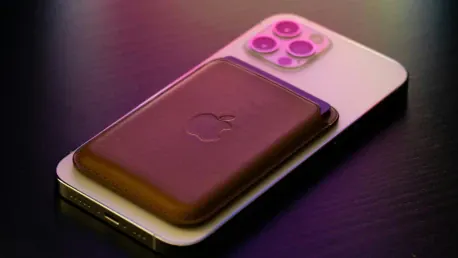Apple has long been known for its closed ecosystem, particularly when it comes to its proprietary technologies. However, this is set to change with the release of iOS 18.1. In a significant move, Apple is expanding access to its near-field communication (NFC) technology, enabling third-party app developers to take advantage of contactless payment features. This decision marks a notable shift in the company’s strategy and has far-reaching implications for developers and users alike. By broadening the capabilities of the NFC feature, Apple seeks to enhance user experience, foster innovation, and comply with regulatory requirements, setting new standards for the fintech industry and beyond.
Opening the NFC Floodgates
With the iOS 18.1 update, Apple will provide third-party app developers access to its NFC technology, a pivotal change from its traditionally tight control. This feature, long associated with Apple Pay, enables secure contactless transactions using the Secure Element (SE) chip embedded in the device. This chip stores sensitive information securely, ensuring a high level of security for various digital transactions.
This initiative is set to include developers from several key markets, including the United States, Australia, Brazil, Canada, Japan, New Zealand, and the United Kingdom. By broadening the geographic reach, Apple provides an expansive playground for innovation and development in contactless technologies. Developers will now have the opportunity to integrate NFC capabilities into a wide range of applications, expanding beyond payments to various other uses.
Supported transactions will include in-store payments, closed-loop transit systems, corporate badges, car keys, event tickets, home and hotel keys, student IDs, and merchant loyalty and rewards cards. In the future, Apple also plans to support government IDs, further expanding the scope and utility of its NFC technology. This broad range of supported transactions opens new avenues for developers to create innovative solutions that enhance convenience and security for users.
Regulatory and Legal Context
Apple’s decision to open NFC access comes in response to regulatory pressures, particularly from the European Commission. Earlier this year, the European Commission accepted commitments by Apple to open NFC access to several European nations, resolving an ongoing antitrust investigation. These commitments are binding for a period of ten years, highlighting Apple’s compliance with global regulatory standards and its willingness to adapt to the evolving legal landscape.
This regulatory compliance not only helps Apple avoid potential legal battles but also sets a precedent for other technology companies to follow. It demonstrates that innovation and regulatory compliance can coexist, benefiting both the company and its customers. By adhering to these regulations, Apple ensures that its technology is not only cutting-edge but also ethically sound and legally compliant.
Terms and Conditions for Developers
Developers eager to leverage Apple’s NFC technology will need to enter into a “commercial agreement” with the company. This agreement encompasses specific terms and conditions, including associated fees that developers must pay to gain access. Apple emphasizes that only authorized developers meeting specific industry and regulatory standards will be granted access, ensuring that the technology is used responsibly and securely.
Apple’s commitment to high security and privacy standards remains unwavering. Even as it opens its ecosystem, the company continues to prioritize user trust and data protection. Developers will need to adhere to these rigorous standards, ensuring that the expanded access does not compromise the security and privacy of users’ sensitive information.
Broader Implications and Industry Trends
This development is likely to set new standards for the fintech industry and other sectors. In the past, Apple’s restrictive approach limited the opportunities for external developers, which often meant that users were confined to Apple’s own apps and services for NFC-based transactions and activities. By opening up this technology, Apple not only makes its ecosystem more inclusive but also encourages competition and diverse innovations.
Additionally, this move reflects Apple’s response to growing regulatory pressures calling for more open systems. As technology continues to evolve, the company’s decision to open its NFC technology might lead to new, innovative applications that benefit both developers and end-users. This could potentially revolutionize how contactless payments and interactions are conducted, not just on iOS devices but across the tech industry.









